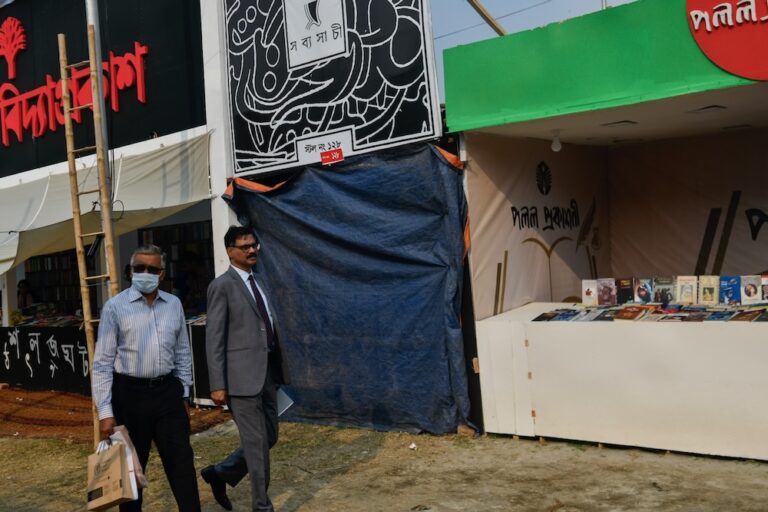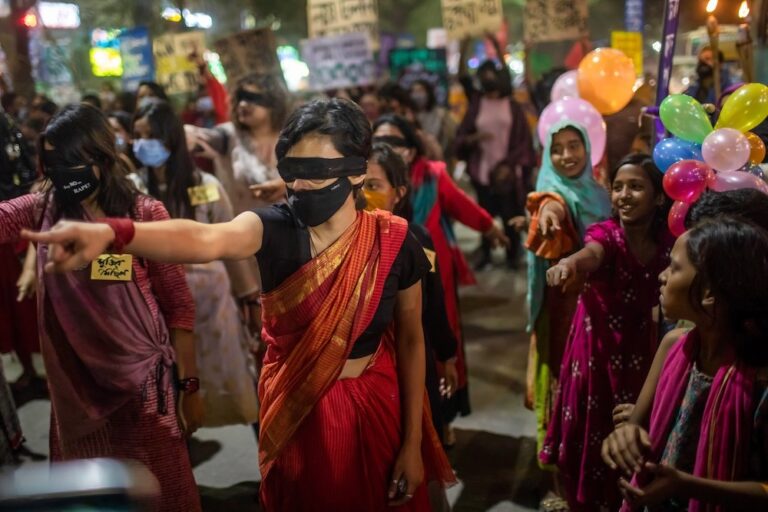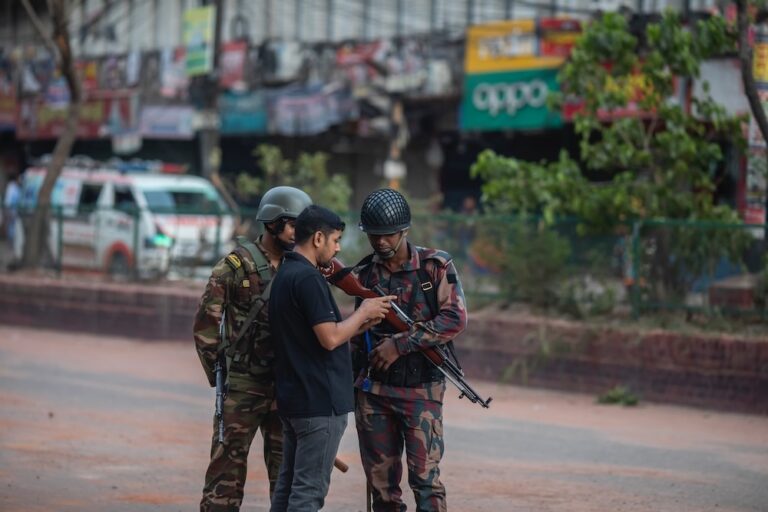(RSF/IFEX) – In a letter to Minister of Home Affairs Mohammad Nasim, RSF expressed its indignation after the killing of a journalist in the south of the country and the attempted assassination of a “Dainik Janakantha” correspondent. “We note that you visited the Dhaka hospital where Prabir Shikder is under treatment and we hope that […]
(RSF/IFEX) – In a letter to Minister of Home Affairs Mohammad Nasim, RSF expressed its indignation after the killing of a journalist in the south of the country and the attempted assassination of a “Dainik Janakantha” correspondent. “We note that you visited the Dhaka hospital where Prabir Shikder is under treatment and we hope that this sign of sympathy will result in concrete actions with a fair and thorough investigation to establish the identity and motives of the assailants and their silent partners,” said RSF Secretary-General Robert Ménard.
“Since the beginning of 2001, journalists reporting about corruption, political violence and religious intolerance have been victims of unbelievably violent attacks.” RSF has recorded thirty-four cases of violence against media professionals in less than four months. “The impunity that protects the authors and their silent partners only incites attacks against journalists,” added Ménard.
According to information collected by RSF, Nahar Ali, correspondent for the local Bengali-language newspaper “Dainik Anirban” in Khulna (south-eastern Bangladesh) died of his wounds on 23 April, at the town’s hospital. According to police and his family, the journalist was kidnapped on 18 April in his village, Dumuria, located a few kilometres from Khulna. Two days later, Ali was found unconscious near his village after being seriously beaten and tortured by his kidnappers. According to doctors, he died of brain damage and severe bleeding. Attackers broke his legs and arms before leaving him for dead near the village. Police accused a radical leftist group named “Biplobi Communist Party” of being responsible for the killing. A minority in this armed movement refused a government general amnesty and roams freely in the south of the country. The rebels frequently target civil servants and journalists who denounce their activities. On 15 January 2000, this armed leftist group killed Mir Illias Hossain, editor of a local newspaper (see IFEX alert of 17 January 2000).
On 22 April, Shikder, correspondent for “Dainik Janakantha” in Faridpur (west of the capital) had his right leg amputated after he escaped an assassination attempt two days earlier. Three unidentified people waiting in a van attacked the journalist while he was driving his motorcycle in the streets of Faridpur. They hurled home-made bombs at him and shot him three times at close range. Before escaping, the attackers indiscriminately beat him with cleavers. Shikder was transferred to a Dhaka hospital where doctors had to amputate his right leg because of a serious bullet wound.
Nobody claimed responsibility for the attack but some of his colleagues said this was vengeance for his articles about war criminals of Bangladesh’s 1971 independence war. The journalist and his family were regularly threatened. Police claimed to have arrested two suspects, Shahidul Islam, 27, and Mohammad Sadiar Rahman, 24. According to the local press, their interrogations had not yet begun because the investigating officer was not available. Civil authorities were reluctant to speak about the case and did not meet with journalists who were demonstrating in the streets after the attack. The authorities refused to receive the petition for urgent action from Faridpur Press Club journalists.
The home affairs minister visited the journalist while he was undergoing treatment. He also met the United News of Bangladesh (UNB) press agency correspondent, Tipu Sultan, who is still hospitalised after being attacked on 25 January by henchmen of ruling party member of parliament Joynal Hazari. After giving financial support to Sultan, the minister promised to take into consideration the journalist’s requests to ensure the security of his family and to finally receive his complaint.


